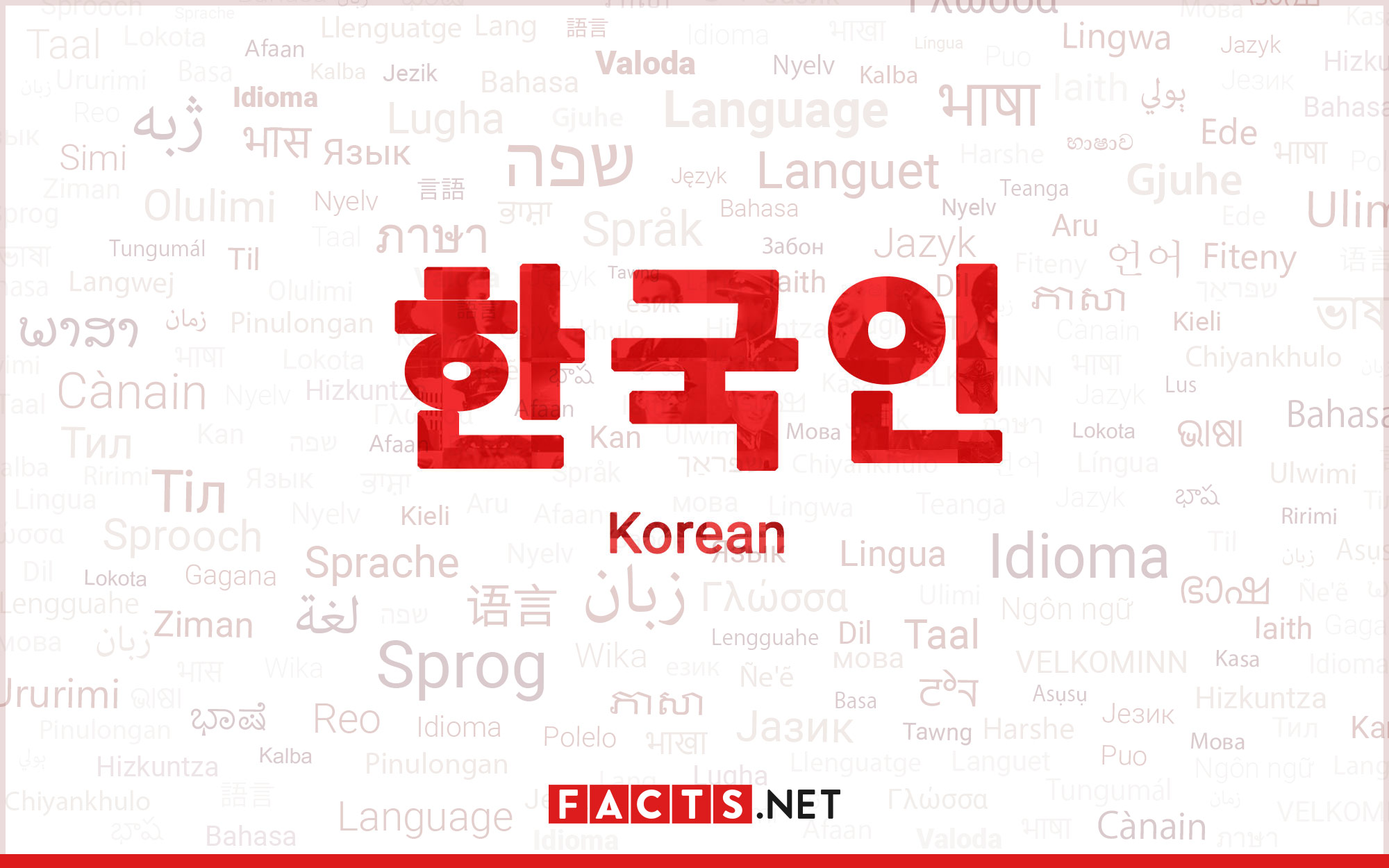
Korean is a fascinating language with a rich history and unique characteristics. Whether you are a language enthusiast or simply curious about different cultures, learning some intriguing facts about Korean can broaden your horizons and deepen your appreciation for this beautiful language.
Did you know that Korean is an isolated language, meaning it has no known linguistic relatives? This linguistic isolation makes it even more fascinating to study and understand. With its distinctive alphabet, known as Hangul, and a complex honorifics system, Korean offers an insight into a different way of communication and cultural norms.
In this article, we will explore 15 intriguing facts about Korean that will pique your curiosity and make you want to delve deeper into this captivating language. From its influence on popular culture to its unique sentence structure, buckle up and get ready for a linguistic adventure as we unravel the secrets of Korean!
Key Takeaways:
- Korean language has its own unique writing system called Hangul, created to increase literacy. It follows a subject-object-verb word order and has different levels of politeness and honorifics, reflecting Korean culture’s importance on respect and hierarchy.
- Korean language has a rich tradition of idiomatic expressions and storytelling. It is relatively easy to pronounce and has a strong influence on pop culture worldwide through K-pop, K-dramas, and movies.
Fascinating Korean is the official language of both North and South Korea.
Korean, known as ??? (Hangugeo) in South Korea and ??? (Joseonmal) in North Korea, is spoken by millions of people across the Korean Peninsula.
Korean has its own unique writing system called Hangul.
Hangul was created in the 15th century by King Sejong the Great for the purpose of increasing literacy among the Korean population. It is considered one of the most scientific and logical writing systems in the world.
Intriguing Korean grammar follows a subject-object-verb (SOV) word order.
This means that the subject of a sentence usually comes first, followed by the object and then the verb. This is quite different from English, which follows a subject-verb-object (SVO) word order.
Korean has different levels of politeness and honorifics.
In Korean, the choice of words and verb endings depends on the social status and relationship between speakers. This reflects the importance of hierarchy and respect in Korean culture.
Interesting Korean has numerous loanwords from English.
Due to the influence of Western culture, especially English, Korean has adopted many loanwords, such as ??? (keompyuteo) for “computer” and ?? (pija) for “pizza”.
Korean has a unique counting system for different objects.
Different counters are used depending on the type of object being counted. For example, there are specific counters for people, animals, objects, and long, thin objects.
Fascinating There are formal and informal speech styles in Korean.
Formal speech, known as ?? (Jochae), is used when addressing older people or those of higher social status. Informal speech, called ??? (Haeyoche), is used in casual conversations among friends and peers.
Korean has honorific suffixes to show respect to others.
Honorific suffixes, such as -? (-nim), are attached to names or titles to show respect and politeness when addressing someone. This is a common practice in Korean etiquette.
Intriguing Korean has two different number systems.
There are native Korean numbers, which are used for counting objects, and Sino-Korean numbers, which are derived from Chinese and are used in formal contexts, dates, and money.
Korean has a rich tradition of idiomatic expressions.
These idioms, known as ???? (Saja-seongeo), are often derived from ancient stories or historical events and are widely used in Korean literature and everyday conversation.
Interesting Korean has many onomatopoeic words.
Onomatopoeic words, called ??? (Dochi-eo), imitate sounds and are used to describe various sensations, actions, and emotions in a vivid and expressive way.
Korean has different forms of honorific speech for writing.
When writing formally, Koreans use an elevated style called ??? (Hapssyoche), which includes complex sentence structures and formal vocabulary to show respect.
Fascinating Korean has a rich tradition of storytelling.
From folk tales to K-dramas, storytelling is an integral part of Korean culture. Various genres, such as pansori (narrative singing) and kkoktu-gaksi (puppetry), showcase the unique art of storytelling in Korea.
Korean is considered a relatively easy language to pronounce.
Unlike some other languages, Korean has a phonetic writing system, which makes it easier for learners to read and pronounce words accurately.
Interesting Korean has a strong influence on pop culture worldwide.
Korean pop music (K-pop), Korean dramas (K-dramas), and Korean movies have gained immense popularity in many countries, spreading the influence of the Korean language and culture globally.
Conclusion
In conclusion, Korean is a fascinating and rich language with a long history and unique features. Whether you are learning Korean for personal or professional reasons, these intriguing facts about the language will surely enhance your understanding and appreciation. From its alphabet system, Hangul, to its honorifics and vast vocabulary, there is much to explore and discover. Moreover, understanding the cultural context in which the language is spoken will provide you with a deeper insight into Korean society and traditions. So, dive into the world of Korean language and culture, and broaden your horizons with this captivating language.
FAQs
1. Is Korean a difficult language to learn?
Learning any new language can be challenging, but with dedication and practice, Korean can be mastered. The grammar structure and pronunciation might be different from what you are accustomed to, but with consistent effort, you can become proficient in Korean.
2. How important is learning Korean?
Learning Korean can be immensely beneficial. It opens up opportunities for travel, business, and cultural exchange. Moreover, it allows you to connect with native Koreans on a deeper level, understand their customs, and appreciate their culture.
3. Can I learn Korean on my own?
Absolutely! Many resources are available online, including language learning apps, textbooks, and language exchange programs. However, joining a language class or finding a language partner can offer additional support and guidance.
4. How long does it take to become fluent in Korean?
The time it takes to become fluent in Korean varies from person to person. Factors such as previous language learning experience, dedication, and practice all play a role. It might take a few months to a few years to become fluent, depending on your commitment and effort.
5. Are there different dialects of Korean?
Yes, there are several dialects of Korean spoken in different regions of Korea. The standard Korean dialect, known as Seoul dialect, is the most widely understood and used. However, regional dialects may have slight variations in vocabulary, pronunciation, and grammar.
Exploring the intriguing facts about Korean language is just the beginning of your journey into this fascinating culture. Dive deeper into Korean culture by discovering the enchanting sights and sounds of Seoul Lantern Festival, where traditional and modern elements blend together in a dazzling display of creativity.
Was this page helpful?
Our commitment to delivering trustworthy and engaging content is at the heart of what we do. Each fact on our site is contributed by real users like you, bringing a wealth of diverse insights and information. To ensure the highest standards of accuracy and reliability, our dedicated editors meticulously review each submission. This process guarantees that the facts we share are not only fascinating but also credible. Trust in our commitment to quality and authenticity as you explore and learn with us.


